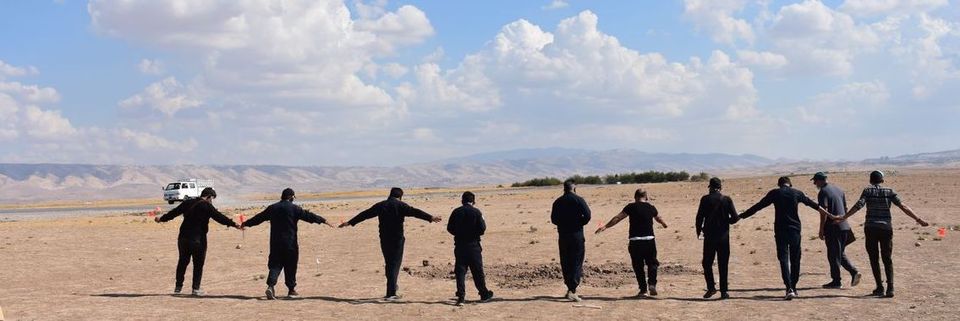
Missing Persons
SJAC’s missing persons team utilizes forensic methods to investigate missing persons and mass graves in Northeast Syria with the goal of identifying those who were disappeared by ISIS and supporting accountability processes. While the majority of missing persons in Syria were disappeared by the former government, the relative stability of the northeast allows for in-depth investigations that are not currently possible in much of the country. SJAC is hopeful that the lessons learned from this project will someday inform a country-wide missing persons program to determine the fates of and pursue justice for all of Syria’s missing.
Learn How SJAC Conducts Contextual Investigations
Investigating mass graves
SJAC works with the Raqqa-based Syrian Missing Persons and Forensic Team (SMFT) in order to investigate mass graves in Northeast Syria and provide capacity building in forensic investigations, with the support of the Forensic Anthropology Foundation of Guatemala (FAFG). The SMFT have exhumed 28 graves since 2018, collecting evidence integral to identifying victims, returning remains to families, and laying the groundwork for criminal accountability and other justice processes. The SMFT have currently paused non-urgent exhumations, as they focus on preserving gravesites and conducting the contextual investigations needed to support identifications.
SJAC’s interactive map of northern Syria includes 246 ISIS prisons and 63 grave sites which were discovered through extensive efforts by SJAC’s missing persons documentation team and the Syrian Missing Persons and Forensic Team.
Documenting and analyzing cases of missing persons
SJAC’s team in Northeast Syria collects documentation on missing persons and ISIS detention practices through interviews with witnesses, family members, and former ISIS affiliates. This data is entered into the missing persons section of SJAC’s database and combined with other lines of evidence, including satellite imagery, records from the ISIS security and judicial apparatus, open-source documentation, and documentation from exhumations. SJAC’s team analyzes all of this data to identify patterns of arrest, detention, detainee transfers, and executions, building hypotheses about the possible fates and whereabouts of individual victims for the purposes of identification.
Working with families of the missing
Families of those who are missing in Northeast Syria are working tirelessly to search for their loved ones and advocate on their behalf. SJAC collaborates closely with these families to elevate their demands and ensure they understand and are directly connected to investigation efforts.
You can read SJAC’s publications on missing persons here.